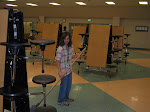Showing posts with label Education. Leadership. Show all posts
Showing posts with label Education. Leadership. Show all posts
Wednesday, January 23, 2008
A Column By Richard Reynolds
Tuesday, January 22, 2008
The Changing Landscape of Education
Labels:
Education. Leadership,
ELL,
Hispanics,
Schools
Safety in the school ...is it possible?
Monday, January 21, 2008
Working Together for the Good of Students and the Community
Labels:
Education. Leadership,
Pedagogy,
Teaching Helps
Thursday, January 3, 2008
Parents are from Mars, Teachers are from Venus
Labels:
Education. Leadership,
Family,
Parenting,
Teaching Helps
Friday, December 28, 2007
Choose your words and choose how you use them
Thursday, November 8, 2007
Stepping out for opportunities

Labels:
Education. Leadership,
encouragement
Wednesday, November 7, 2007
Friday, November 2, 2007
Helping Students Learn at Home and at School
Labels:
Education. Leadership,
encouragement,
Teaching Helps
Tuesday, October 30, 2007
Leading that provides more opportunities

Labels:
Education. Leadership,
Life,
Teaching Helps
Thursday, June 28, 2007
Humor that you can use in mixed company and not be embarrassed!
June 29th, 2007 ·
The young man entered the Ice Cream Palace and asked, “What kinds of ice cream do you have?”
“Vanilla, chocolate, strawberry,” the girl wheezed as she spoke, patted her chest and seemed unable to continue.
“Do you have laryngitis?” the young man asked sympathetically.
“Nope,” she whispered, “just vanilla, chocolate and strawberry.”
It is hard to find good humor to use when leading, speaking or just in personal relationships ! The above joke came from…
The Cybersalt Digest and is a ministry of Pastor Tim and Cybersalt Communicationshttp://www.cybersalt.org/cleanlaugh I recommend you check it out and make it part of your regular email by signing up for it. Then save them and you never know when they will come in handy! As leaders we need to be able to show that humor does not have to reside in the gutter or a trash can to be funny. Here is some more of the Cybersalt for your sampling…
Today’s CleanPun - “Musical Note”
The first graders were attending their first music lesson. The teacher was trying to begin at the beginning. She drew a musical staff on the blackboard and asked a little girl to come up and write a note on it.
The little girl went to the blackboard, looked thoughtful for a minute and wrote, “Dear Aunt Emma, just a short note to tell you I’m fine.”
Today’s Eye Laugh- Don't miss this!!!!!!
*Computer Scale*http://www.cybersalt.org/go.php?id=cw485
Labels:
Education. Leadership,
encouragement,
Ethics
Thursday, June 21, 2007

Thought for the day:
We make a living by what we get: we make a life by what we give.-Winston Churchill
Harvey Mackay is a favorite author and speaker of mine! Part of providing opportunities on my part is making the best accessible and known to you! Fulfilling that means that I will acquaint you with the authors, speakers and resources that will assist you in your personal and professional life while also giving you ideas of how you can provide more opportunities of the children and youth of today! Below is another one of Harvey's post:
Harvey Mackay's Column This Week: What they don't teach you in school
As many college graduates are scrambling to find jobs, one of the most important things for graduates to understand is that you're in school all your life. In fact, your real education is just beginning.
I'd like to pass on a few lessons, which weren't necessarily covered in school. If you've been out of school for a few years—or a lot of years—this advice is still for you; consider it a refresher course.
Develop relationships and keep networking. If I had to name the single characteristic shared by all the truly successful people I've met over a lifetime, I'd say it is the ability to create and nurture a network of contacts. Start strengthening your relationships now, so they'll be in place when you really need them later. In the classroom it was mostly about your individual performance. Success in real life will require relationships. Who you know determines how effectively you can apply what you know. So stay in touch.
Find advisors and mentors. Advisors will not be assigned to you, as in school. You should actively seek your own mentors. And remember, mentors change over a lifetime. Start connecting with people you respect who can help you get a leg up in each aspect of your life, personal and professional. Make it as easy and convenient as possible for them to talk with you, and always look for ways to contribute to their success, too.
Build your reputation. Nothing is more important than a good reputation in building a successful career or business. If you don't have a positive reputation, it will be difficult to be successful. All it takes is one foolish act to destroy a reputation.
Set goals. Ask any winner what their keys to success are, and you will hear four consistent messages: vision, determination, persistence and setting goals. If you don't set goals to determine where you're going, how will you know when you get there? Goals give you more than a reason to get up in the morning; they are an incentive to keep you going all day. Most important, goals need to be measurable, identifiable, attainable, specific and in writing.
Get along with people. Ask recruiters from various companies to name the number one skill necessary for new hires, and many of them will say it's the ability to get along with people. Co-workers share office space, facilities, break rooms, refrigerators and coffee pots. They arrive together, take breaks together, eat lunch together and meet to solve problems together. All this closeness and familiarity can wear thin at times. Everyone shares responsibility for making the company work, run smoothly and stay profitable
Be happy. We are all responsible for our own happiness. Don't waste time and energy being unhappy. When people aren't happy doing what they do, they don't do it as well. Life will always be filled with challenges and opportunities. Both are best faced with a positive attitude.
Smile. A smile should be standard equipment for all people. I learned years ago that one of the most powerful things you can do to have influence over others is to smile at them. Everything seems much easier with a smile.
Sense of humor. I'm a firm believer in using humor—not necessarily jokes. A good sense of humor helps to overlook the unbecoming, understand the unconventional, tolerate the unpleasant, overcome the unexpected and outlast the unbearable. There are plenty of times to be serious, but I believe that keeping things light and comfortable encourages better teamwork.
Be yourself. We all have areas that need a little work, but accepting who we are and making the most of our good points will take us much farther than trying to be someone we aren't. Be content with your abilities and comfortable enough in your own skin to trust your gut.
Volunteer. It might be hard to do a lot of volunteer work at first, but people who help other people on a regular basis have a healthier outlook on life. They are more inclined to be go-getters and consistently report being happier. Volunteering is good for everyone.
Mackay's Moral: The purpose of education is not to teach youth to make a living, but to make a life.
Labels:
Education. Leadership,
free advice,
goals,
Life,
people,
Teamwork

Habit…What does this have to do with …


June 21st, 2007 ·
Habit…What does this have to do with taking
new steps forward in education and leadership?
Nicole Richie, Nick Nolte, Mel Gibson and Pac Man Jones…what do they all have in common?
They are ones that did not understand the power of H-A-B-I-T. “The Seven Habits of Highly Effec tive People” which was first written by Stephen Covey and then his son Sean Covey wrote a version of the original dealing with the adolescent issues while still dealing with the idea of a life run by principles. Research has proven that a life based on principles and not aimlessly lived can produce a more fulfilling, productive life. More pictures could have been posted here of celebrities and other notable people in society that have not found the key of deciding their key habits which will make one the most productive !
tive People” which was first written by Stephen Covey and then his son Sean Covey wrote a version of the original dealing with the adolescent issues while still dealing with the idea of a life run by principles. Research has proven that a life based on principles and not aimlessly lived can produce a more fulfilling, productive life. More pictures could have been posted here of celebrities and other notable people in society that have not found the key of deciding their key habits which will make one the most productive !
 tive People” which was first written by Stephen Covey and then his son Sean Covey wrote a version of the original dealing with the adolescent issues while still dealing with the idea of a life run by principles. Research has proven that a life based on principles and not aimlessly lived can produce a more fulfilling, productive life. More pictures could have been posted here of celebrities and other notable people in society that have not found the key of deciding their key habits which will make one the most productive !
tive People” which was first written by Stephen Covey and then his son Sean Covey wrote a version of the original dealing with the adolescent issues while still dealing with the idea of a life run by principles. Research has proven that a life based on principles and not aimlessly lived can produce a more fulfilling, productive life. More pictures could have been posted here of celebrities and other notable people in society that have not found the key of deciding their key habits which will make one the most productive !
Ask yourself three things:
What habits should I add to my life?
What habits should I eliminate from my life?
Subscribe to:
Posts (Atom)
What makes this blog worth your time?
"Providing Opportunities" is a blog that will be worth your while to browse at least once a week for ideas that might work for you as you seek to better the world for the youth of t0day. As you check this blog you will find out information about this class that will inspire you, inform you and may give you ideas. This blog will be different in that if ideas are given as as a post and they seem to warrant letting others know about them then they will be posted with credit given for the source. Stephen Covey the famous author stressed the idea of "synergy" and those accomplishing more together than working seperately. This blog can accomplish synergy which provides a resource which Dr. Harry Wong states is the best way for any teacher to learn which is to "steal ideas" from other teachers and use them. "Providing Opportunities" can only work if others will submit their ideas that they have either used or seen used that worked.
add'>http://technorati.com/faves?sub=addfavbtn&add=http://providingopportunities.blogspot.com>Add to Technorati Favorites
View blog authority
Technorati Chart
add'>http://technorati.com/faves?sub=addfavbtn&add=http://providingopportunities.blogspot.com>Add to Technorati Favorites
View blog authority
Technorati Chart
Making a difference today...will provide a better tommorrow!

Providing Opportunities today changes a tommorrow!


